 Donald (DJ) Bolger, Lab Director
Donald (DJ) Bolger, Lab Director
Associate Professor, Department of Human Development and Quantitative Methodology
Dr. Bolger studies how the brain learns to read and what are the cognitive and neural bases of reading and language ability and disability. The core of his research focus is on these key issues of reading from neurobiological, cognitive, developmental and educational perspectives. Reading is a complex cognitive skill that requires that small complex visual forms (letters) be accurately recognized and integrated with linguistic information from sound and meaning with the ultimate purpose of achieving comprehension. Thus, typical and atypical reading and language ability may be reflected in heterogeneous patterns of cortical activation stemming from visual, auditory or supramodal processing regions.
Dr. Bolger employs multiple methods in structural and functional MRI to understand the dynamics of cortical networks in skilled and disabled readers, including functional connectivity analyses and diffusion imaging. Dr. Bolger’s lab is increasingly focusing on how the effects of intervention are reflected in cortex, specifically using executive function and working memory training paradigms. From school-based and cross-sectional paradigms to online adult training tasks, our work combines innovative and complex methodologies the combine MRI with event-related potentials (ERP) to understand development and learning.
Dr. Bolger is an affiliate of the Language Science Center (language.umd.edu) , the Center for Advanced Study of Language (casl.umd.edu) and a founding member of the Maryland Neuroimaging Center (mnc.umd.edu ).
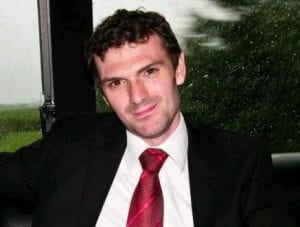
Jeremy J. Purcell
Faculty Research Scientist, Maryland Neuroimaging Center
The main focus of Dr. Purcell’s research is to index and track learning in the brain. To this end he has developed a novel and generally applicable regression based algorithm (Local-Heterogeneity Regression) that can be applied to either task based or resting state functional Magnetic Resonance Imaging (fMRI) data. This measure quantifies the magnitude of local neural response differentiation, and is thought to provide a proxy measure for the information encoding capacity of local brain regions.
Dr. Purcell is actively applying these methods to two main research branches. The first branch is to understand how the brain represents and learns written language. Dr. Purcell’s focus has been on the neural changes associated with re-learning written language after brain injury, and more recently in the neural changes associated with typical learning during the development of literacy skills. The second branch is to index and track healthy neurodevelopment and healthy brain aging. He has begun to implement these methods to index the health of local brain responses in older brains and also to track how exercise impacts brain health.
Dr. Purcell is eager to collaborate with researchers studying the brain basis of learning, and/or researchers interested in how to measure the quality of local brain responses.
Dr. Purcell is an affiliate of the Neuroscience and Cognitive Science Program (NACS) (nacs.umd.edu), the Psychology Department (psyc.umd.edu), and the Maryland Neuroimaging Center (mnc.umd.edu).
http://mnc.umd.edu/faculty/purcell
http://www.jjpurcell.com
Graduate Students
 Benjamin Rickles
Benjamin Rickles
Benjamin received his bachelor’s degree at University of Pittsburgh, where he was trained in event-related potential (ERP) technique by Dr. Gwen Frishkoff. Since then he has worked on various projects related to reading and the brain. He is a current doctoral student in the Neuroscience and Cognitive Science program (NACS) program at UMD where he has been looking at mechanisms of vocabulary learning. Benjamin’s current research goal is to develop a testable model of cognitive engagement for people tasked with reading or listening to speech.
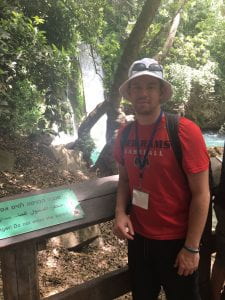 Joshua Jaffe
Joshua Jaffe
Joshua is a current doctoral student in the Department of Human Development and Quantitative Methodology. He graduated in 2018 from Binghamton University with a B.S. in Integrative Neuroscience. Before becoming a Terp, he spent a year conducting human factors research in Rockville, MD. Joshua is interested in researching the relationship between language and mathematical reasoning using the event related potential (ERP) technique.
 Nicole Catanzarite
Nicole Catanzarite
Nicole is a current doctoral student in the Neuroscience and Cognitive Science (NACS) program. In the lab, she seeks to uncover the behaviors and neural mechanisms that underlie reasoning and creativity. Outside the lab, Nicole serves as a Society for Neuroscience Early Career Policy Ambassador and as NeuroPolicy Chair of the Society’s DC Metro Area Chapter. She is particularly interested in science communication and the intersection between research and policy.
Svetha Mohan
Svetha is a current master’s student in the Department of Human Development and Quantitative Methodology. She earned her B.S. in Psychology from the University of Central Florida. Before graduate school, she worked for two years as an elementary ESL teacher. Svetha is interested in the neurodevelopment of children’s executive function, and the effects of environmental factors such as engagement and stress on children’s language achievement.

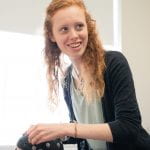 Alissa Cole
Alissa Cole 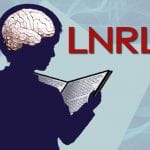 Anchal Shukla
Anchal Shukla Erica Varga
Erica Varga  Hannah Weisman
Hannah Weisman Mahshad Farnoush
Mahshad Farnoush 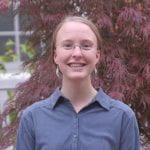 Alice Jackson
Alice Jackson  Brandee Feola
Brandee Feola Lesley Sand
Lesley Sand  Say-Young Kim
Say-Young Kim